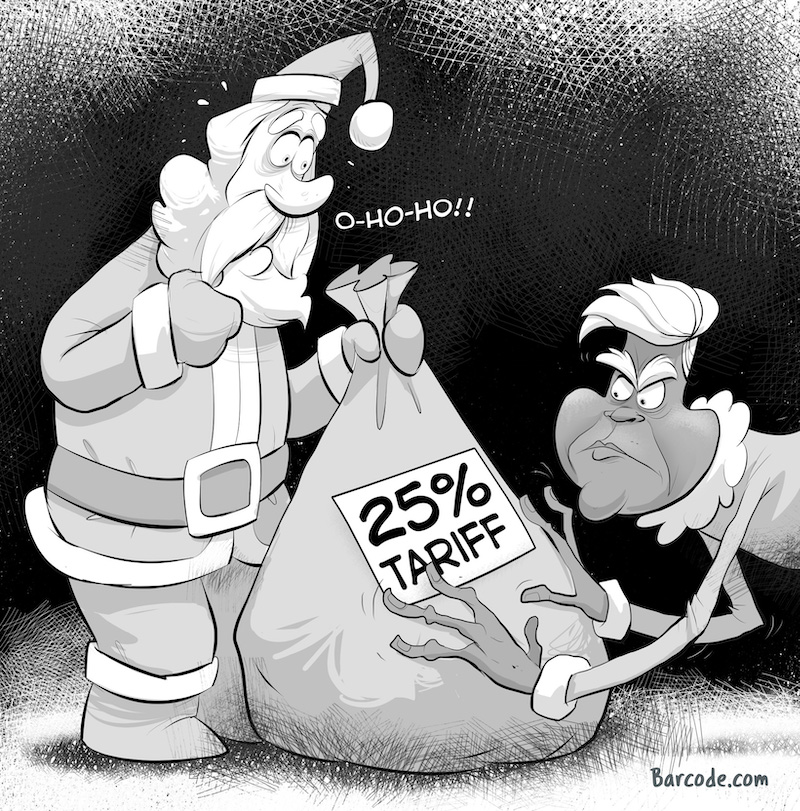Will Tariffs Put A Damper On The Xmas Spirit?
 (This article has been updated to reflect recent announcements confirming additional tariffs.)
(This article has been updated to reflect recent announcements confirming additional tariffs.)
Orders for the 2019 Christmas season have been placed. Companies who import goods from China are facing the prospect of those goods still having tariffs when they arrive on US soil.
With the President's latest threat (June 10, 2019) of applying $300 billion more in tariffs, anything is possible. The tariffs on an addition $300 billion in US goods are now official. As is the Chinese directive not to buy any American farm goods, although
It's tough to make business decisions when White House policy changes every other week.
I empathize with the retailers and manufacturers who have to make long term plans in the midst of a mess created by the government and I wonder who at the White House or amongst his supporters has been the driving force behind this policy?
Tariffs are a tax on the companies who import the products and on the Americans who have to pay for those goods. Some American companies have moved production out of China, to countries like Vietnam. There is no indication that most manufacturing is coming back to America.
At the same time, retalitory actions by China have cost American farmers billions in sales of grain. To compensate, the US government is now subsidizing farmers to the tune of $28 billion dollars this year. Of course, these subsidies are paid by the American taxpayer. So American companies are paying a tax to import from China and part of that tax is being paid out to farmers who lost business due to the tariff in the first place. That makes two important groups of consituents being harmed by these tariffs. Two important industries whose supply chains and ordernig process has been greatly disturbed by the US government.
Is China unfair in its treatment of US companies? In some ways, yes. On the other hand, nobody forces an American company to do business with or manufacture goods in China. Domestically we have a different situation. America loves selling merchandise to the Chinese. American realtors love selling real estate to Chinese buyers. American universities welcome Chinese students with open arms. This chill in relations with China doesn't seem likely to go away anytime soon, and even when it does, the subtle repercussions will go on for decades.
For every industry that wins, another one is losing - and countless billions of dollars and millions of man-hours are being wasted on relocating factories, finding and vetting new suppliers, re-thinking business strategies - all of which hampers business investment for years.
In 2035 or 2050, when we look back and measure the overall success of this trade war, I fear we will find that overall, there was no net long term benefit.
Craig Aberle
